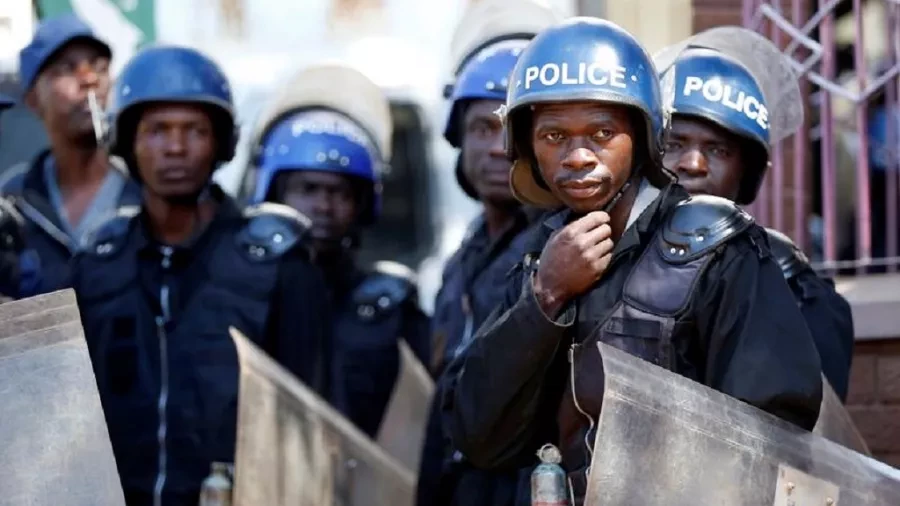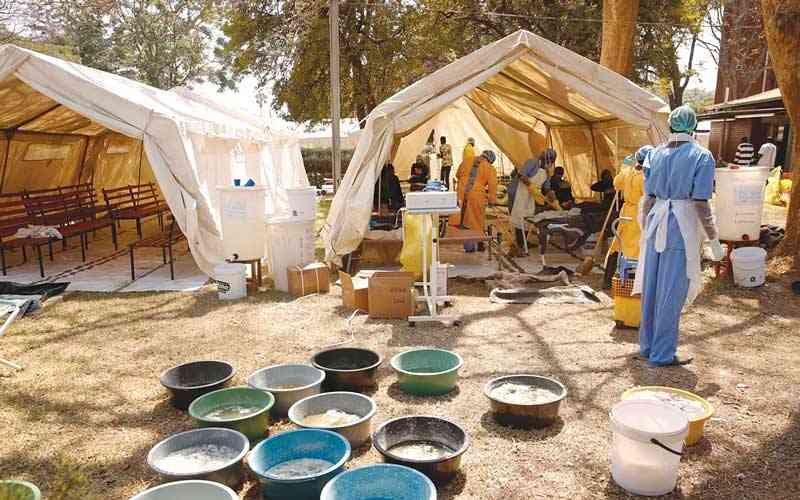
These activities, as described in the Sadc statement, served to intimidate voters by suggesting that it would be easy to determine who voted for which party. Following the elections, the head of the African Union observer delegation, former Nigerian President Goodluck Jonathan, commented that the “FAZ activities should be declared criminal offences.”
A third factor that contributed to the critical Sadc report was police raids on the offices of two well-regarded domestic monitoring organisations, the Zimbabwe Election Support Network (Zesn) and the Election Resource Centre and the arrests of 39 of their staff members.
The two organisations were conducting a parallel vote tabulation exercise, whereby they could either verify or counter the official results released by Zec. The individuals arrested were released within 48 hours, but they now face criminal trials on spurious charges of having violated Zimbabwe law proscribing the premature release of election results.
Parallel vote tabulations are common practice worldwide; indeed, as Zesn has noted, its 2018 tabulation was used by the ruling party to confirm the Zec pronouncement of a Mnangagwa victory and to refute the opposition’s claim that it had won overwhelmingly. The government’s brazen attempt to interfere with such a widely-accepted practice was quickly condemned by a global network of domestic monitoring organisations and by the US Agency for International Development, which provided assistance to the two organisations.
“Short of the requirements of the Constitution”
These incidents and others that are described in the report led the Sadc delegation, headed by former Zambian Vice-President Nevers Mumba, to conclude “that some aspects of the harmonised elections, fell short of the requirements of the Constitution of Zimbabwe, the Electoral Act, and the Sadc Principles and Guidelines Governing Democratic Elections (2021).” Such overt criticism of a fellow Sadc member was unprecedented. Within hours, ruling party spokesperson responded that the head of delegation was “reporting his own personal opinion to discredit the country’s polls and not reflecting the Sadc electoral principles.”
Mumba dismissed the criticism as “laughable,” reiterating that the mission was present in-country at the invitation of the government to observe and operated in a collegial manner as required by Sadc guidelines. The following day, Sadc headquarters in Botswana issued a statement of support for its delegation on the ground.
However, two of the three members of the current Sadc Troika, the presidents of Tanzania and Namibia, congratulated Mnangagwa on his election victory without any reference to the concerns raised by the Sadc observers. And with South Africa’s president also offering congratulations to Mnangagwa on his victory, Sadc is primed to resume business as usual, notwithstanding the Sadc delegation’s criticism of the process.
- Editorial Comment: Govt should divest from agriculture
- ‘Govt spineless on wetland land barons’
- SA’s search for a fairer electoral system
- Zim economic situation hinders women’s political participation
Keep Reading
Given the prevailing circumstances, the critiques of Zimbabwe’s 2023 elections by international observers were well-warranted and demonstrate the limits of a concerted government strategy to influence the assessment of international organisations. International observers, by referencing recognised regional and international standards and their respective guidelines, stayed well within their lane and reinforced their value.
What’s next
Looking to the future, organisations that deploy international observers should reflect upon the proper responses to government delays in accrediting observers and efforts to undermine their work. One option is for observer organisations to issue periodic assessments addressing key elements of pre-election activities to encourage shifts in policy or practice that would enhance the credibility of the process. A second option is for organisations to refuse a government invitation that comes late in the process or to scale down the scope of a mission where appropriate guarantees regarding the selection and accreditation of observers and their freedom of movement are not forthcoming.
The Zimbabwe 2023 election saga is not yet complete. While Mnangagwa’s vote percentage, as reported by Zec, increased slightly from 50,8% in 2018 to 52,6% in this year’s elections, overall turnout decreased from 85% to 68%, likely reflecting either growing apathy among voters or a successful voter-suppression operation, or both. The lack of an independent parallel vote tabulation obviously complicates the task of validating the Zec-announced vote count, and Chamisa has denounced the released results as reflecting “a blatant and gigantic fraud.” But the opposition has not decided whether to challenge the election results at Constitutional Court, which they view as captured by the ruling party, or to rely on sustained international pressure to deny the ruling party electoral legitimacy.
The reported results reinforce evidence of the polarisation that exists within Zimbabwe and the deep distrust between the major parties. The Sadc delegation’s critical assessment of the election process provides an opportunity for the organisation to buck tradition and act as a credible mediator in helping Zimbabwe to address the major political and economic challenges it faces. The dispatch of an Sadc team of elders to Zimbabwe could reflect an interest in Sadc serving in this capacity.
But such a shift in orientation would require Sadc’s political echelon to engage Zimbabwe’s principal political actors in a manner that does not bestow electoral legitimacy on the announced winner of a process that the organisation’s observers have assessed as severely flawed. That seems unlikely, given the congratulatory messages, but the Sadc observer delegation certainly delivered a surprise; perhaps its political leaders could muster the courage to do the same.








